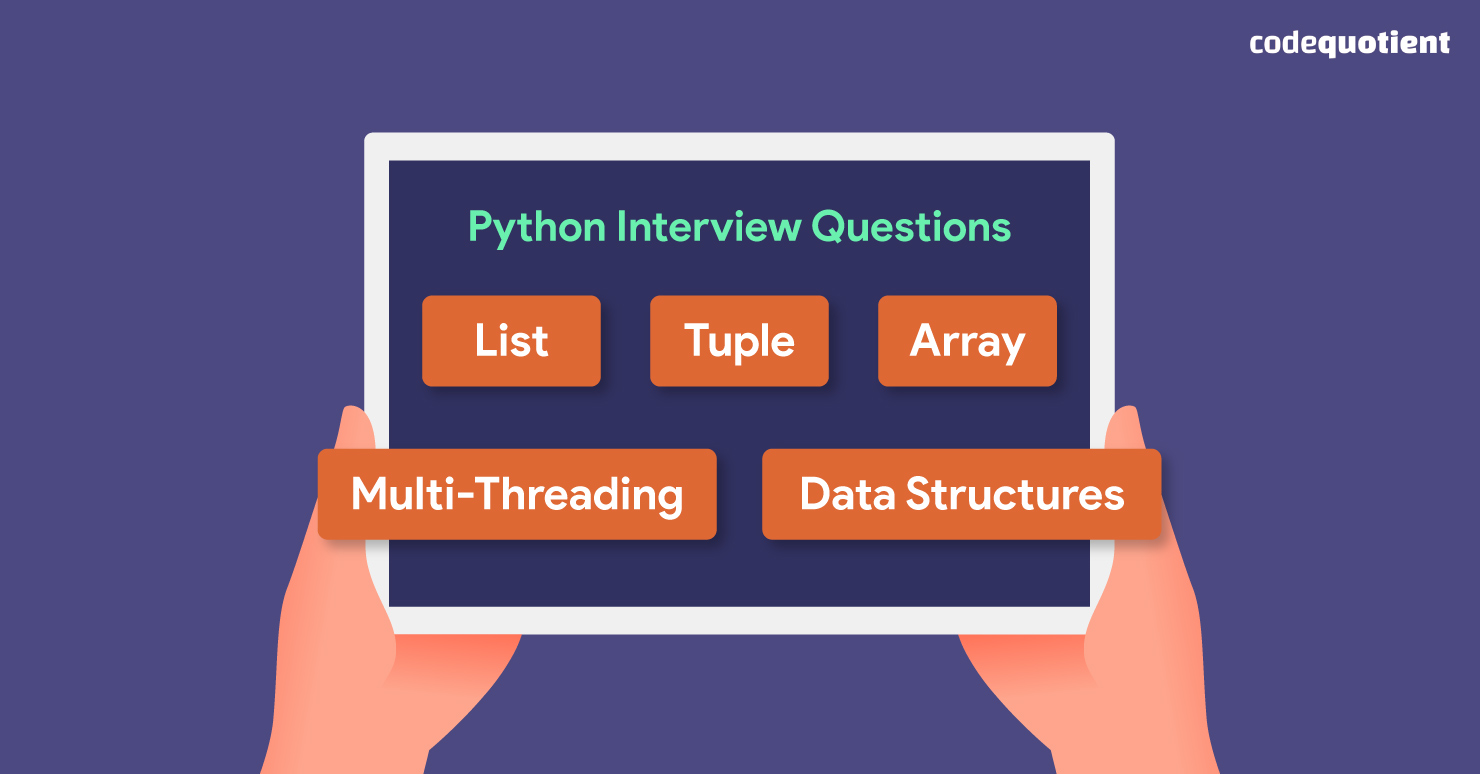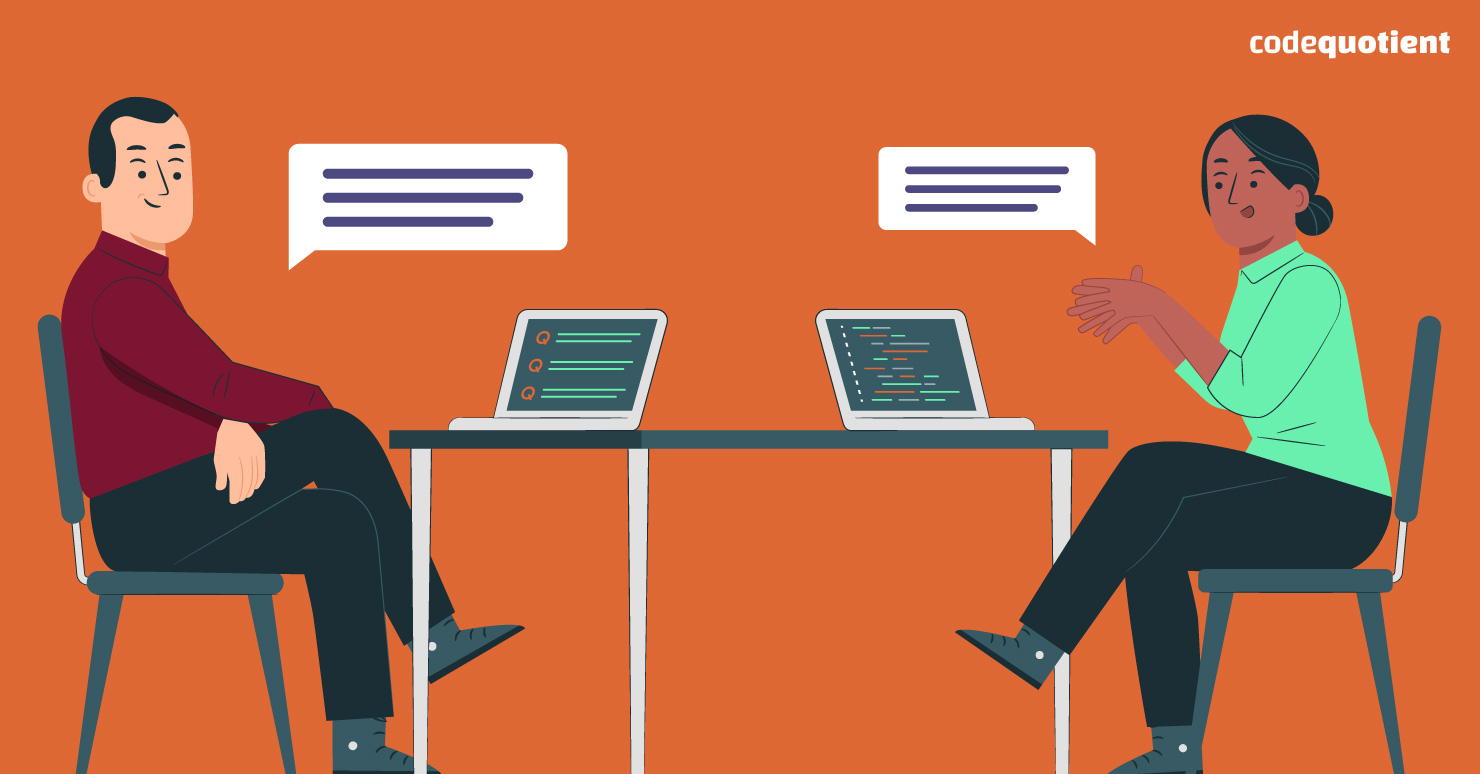Python, otherwise known as the Queen of Beginner’s Scripting programming languages, is becoming increasingly popular as a useful skill for becoming a data scientist.
Having a sound knowledge of the language will be helpful in clearing the technical rounds. If you want to brush up on your knowledge, then this article is for you. Here, we have enlisted some of the most frequently asked Python coding questions in Accenture interviews for you.
Python Coding Questions for You to Get Started

Many are intimidated by the thought of interviewing for a web development position with a well-known brand.
What if you are not very confident about coding in Python? What if you only know the basics? Never fear! Here are some of the most common Python coding questions:
Q1: What is the difference between a List and a Tuple?
A list is an ordered sequence of items, and a tuple is an unordered sequence of items. You need to use subscripts if you want to modify or delete any item from a list, whereas tuples can be modified or deleted by indexing them with their index number.
Q2: What does it mean when someone says they use “Pythonic code”?
The term “Pythonic code” refers to a code that follows the conventions of the Python programming language. It is easy to read and is written in an idiomatic style.
Q3: What are the different ways to sort an array?
There are several different ways you can sort an array depending on the type of data.
In general, sorting arrays is a common task that can be accomplished by using the sort() function or its companion reverse() function.
List of ways to sort an array:
- The sort() method:
list.sort(key=…, reverse=…)
- Alternatively, you can use Python’s built-in sorted() function for the same purpose.
sorted(list, key=…, reverse=…)
The difference between sort() and sorted() is: sort() performs the function directly, whereas sorted() invites no change to the list and gives a new list that is arranged in a particular way.
3) list.reverse() – reverses a list in place
Q4: How do you find the largest number in a list of numbers in Python?
The max() function determines the largest number in a list of numbers.
Check out fixing the bug for more valuable Python coding questions resources.
Additional Points to Brush Up
Apart from the Python coding questions mentioned above, we believe going through the following points will be beneficial before an interview. Refresh or expand your knowledge base with these:
1. NumPy, PySpark, Pandas Libraries
NumPy, PySpark, and Pandas library are three different bundles of related modules of Python code. Users can decide which one to use based on their needs, as they all come with different strengths and weaknesses.
NumPy is primarily used to work with arrays, linear algebra and Fourier transformations matrices. It includes some other functions as well for the domain of data science.
PySpark is part of the PySpark ecosystem, which consists of a Scala API, Java API and Python API. Its strength lies in integrating large volumes of data into Spark applications.
Pandas, a powerful library, is quite popular in the Python programming language. It can help you with data manipulation and table sorting like never before. With its extensive range of tools, Pandas will allow you to answer the most challenging business questions faster.
2. Multi-Threading
Multi-threading is the process of splitting up parallel tasks so that they may be executed at the same time. Python programming has libraries that allow the programmer to create multiple threads and then manage their execution.
For example, a web server must handle many simultaneous requests simultaneously, and threading is used to divide these jobs among different processes.
3. Data Structures
Data structures are an integral part of computer programming. They provide a way for data to be stored, organised and accessed. Data structures consist of collections of data that have something in common, like strings or integers. This collection is stored in a variable, and each item inside the collection is called an element.
4. Lambda Functions
Lambda functions are one of the most used concepts in Python programming. They are short snippets of code that can be executed in a specific context. They are often used as event handlers or to make code more readable by separating it into blocks on the basis of functionality.
5. CI/CD Concept in Python Programming
Continuous Integration (CI) and Continuous Delivery (CD) is integrating code changes quickly and delivering them frequently. It works on the principle that any task that can be done automatically should be done automatically to increase speed, decrease time, and reduce errors.
CI/CD tools like Jenkins can compile, package, test, and deploy your application/service with a single command.
6. Python’s Philosophy Toward Code Readability
Python is not challenging to learn but it is quite intuitive. It also has a clean and powerful syntax, making it a joy for developers at any skill level.
7. Object Oriented Programming (OOP)
Every software engineer must be familiar with OOP concepts. It can be tricky, but Python has made this much more manageable with its unique syntax. Object-oriented Programming (OOP) is a software design paradigm that uses data and code abstraction to create objects that interact with each other.
The key feature of OOP is encapsulation, which means the data and methods unique to a class are contained within the class. Encapsulation in Python allows you to group related functions and data into one object, which increases reusability.
In a Nutshell
Working on these Python coding questions can improve your skills in multi-domains of programming. The knowledge you learn here can help you become a better engineer and an efficient problem-solver.
Looking for more material to prepare for your upcoming Accenture interview? Check out our Accenture-specific preparation tips.
If you want to upgrade your current level of coding skills, and know more about Python coding questions, enrol in CodeQuotient’s SuperCoders program. This 3-month comprehensive online course can equip you with practical skills and make you a desired professional in tech.




